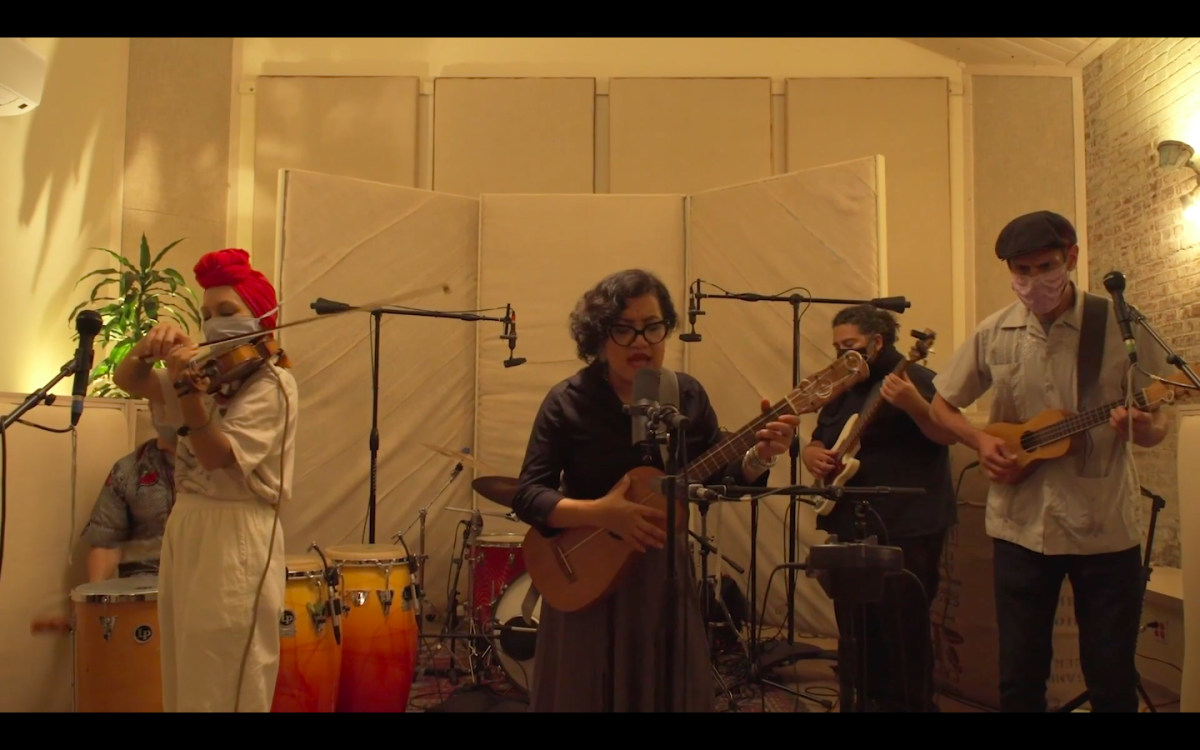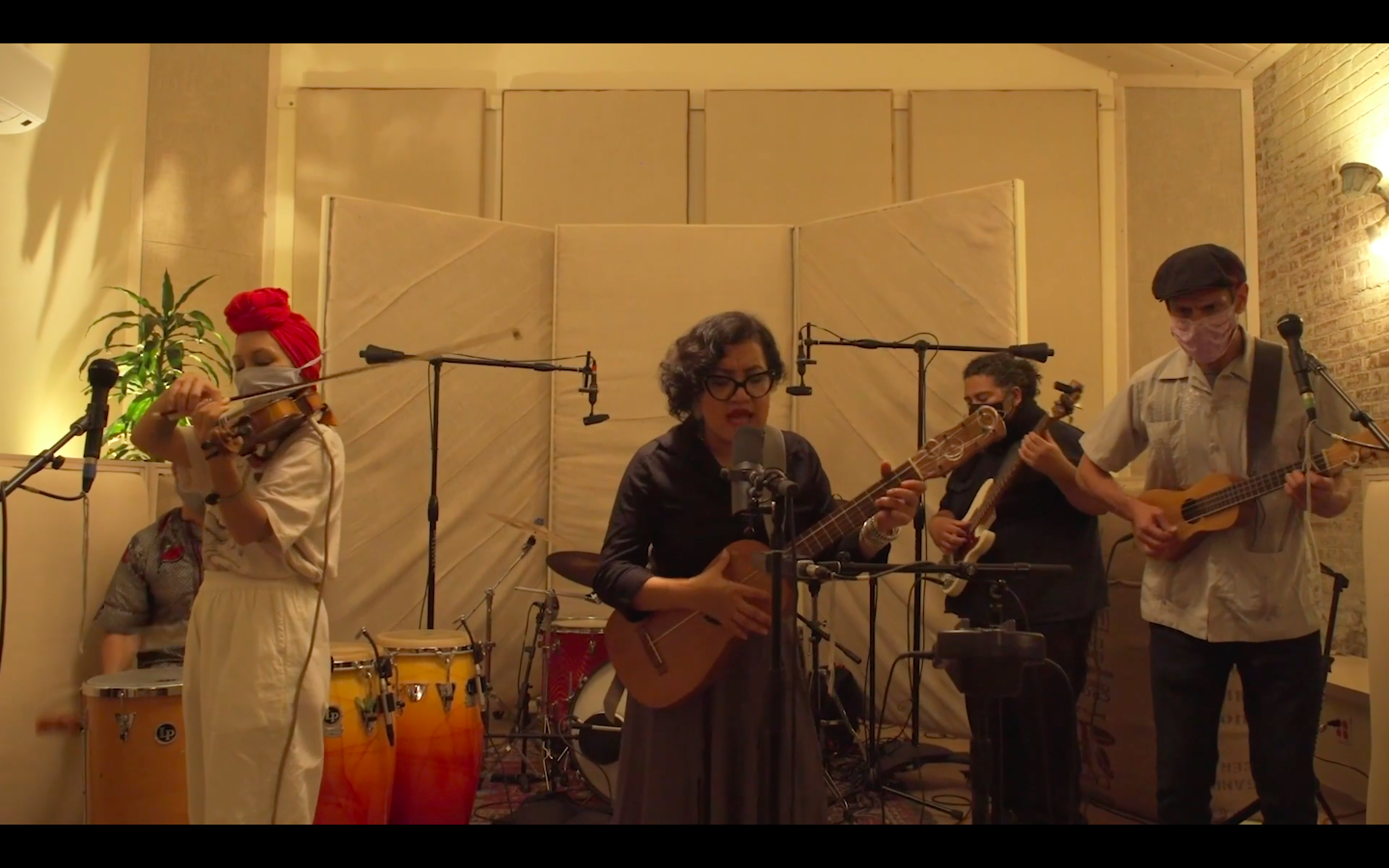Last Thursday the Grammy award winning band ‘Quetzal’ was a guest in The Green Room, a space reserved for revealing conversations, personal connections and compelling performances inside of the Green Music Center. The Green Room has transitioned itself into a space for the Green Music Center to hold their virtual events during the Pandemic. Quetzal’s visit consisted of vibrant performances of songs from their newest album Puentes Sonoros.
The digital livestream hosted by Jacob Yarrow, Executive Director of the Green Music Center, featured conversations about the bands origins in activism focusing on a range of topics affecting society. Raised by activists Quetzal Flores says his parents raised him with strong ideals around social work and its importance, when realizing his desire to pursue music professionally he knew from the values instilled in him that it could never just be music. The bands’ origins are in East Los Angeles, they formed together to begin making music and took the name Quetzal in 1994. Their activism and inspiration centered around the Chicano community, and the issues facing their community in East LA. The bands blend of social activism and art can be heard in the strength and artistry of their music. Their band features two female showrunners and as a whole exude a sense of diversity that compliments their music. Dr. Alex Chavez summarized the bands influences by stating “You hear students of Chicano rock, rhythm and blues, JB funk, Cuban batá, punk, and Motown soul. You hear a band that has cut its teeth organizing, that has worked to fight forms of oppression in the communities they are connected to. And in pursuit of forging these creative and political bridges, you hear artists who are at the epicenter of the transnational world of son jarocho.”
Their performance in The Green Room featured five songs, including La Vuelta (The Turn) that highlighted woman empowerment and El Perdon (Forgiveness) one of their hits off the new album, that showcased the talent and reach Quetzal has from performances in a variety of spaces, including their home, the intimate setting of the concert allowed for a unique look at the bands style. Interviews that predicted the performances in which social implications and the song’s origins allowed for a greater appreciation of the music as one could really get a sense of the artists personalities. Kiley Cardamone, Sonoma State senior and Communications major watched the concert, “ I had never seen a Green Room performance before and I enjoyed the way it was set up to get further insist on their music with the interviews throughout the performance and to introduce the songs, Quetzal was a group I had not heard of but it was inspiring to learn about their activist roots and helped me enjoy their music”. The choice to space the interview over the duration of the concert was engaging and lended itself for a deeper appreciation of the group’s music.
While the shift to virtual performances, especially musical ones has been unfavorable, The Green Room has taken advantage of the opportunity. They have transformed the Green Room into a space that allows for more intimate performances and gives a space for artists such as Quetzal to be showcased in an innovative way.




































